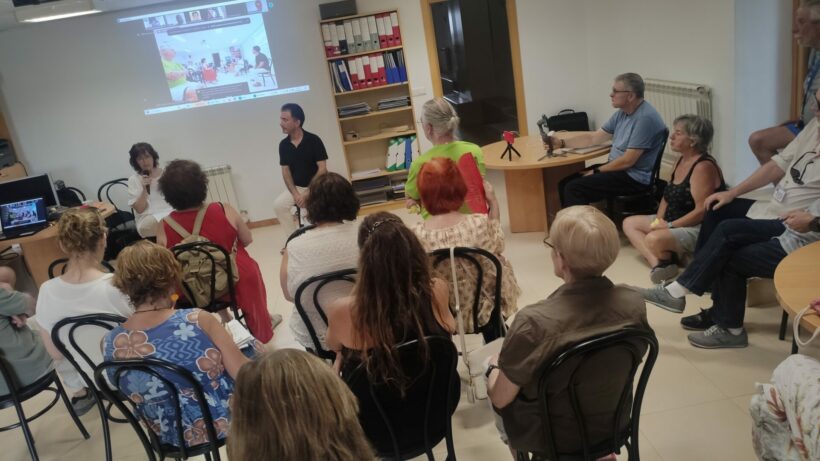Under this title, a panel was held as part of the 1st Summer School of Universalist Humanism at Parque Toledo, in which advances were discussed: basic income, nuclear fusion, AI… and how to make them work for the benefit of all humanity.
Álvaro Orús, Juan Carlos Marín, Juan Limón and Juana Pérez Montero.
Scientific-technical accumulation and the new possibilities of evolution for the human being
Climate change – Climate change refers to long-term shifts in temperatures and weather patterns, mainly caused by human activities, especially the burning of fossil fuels.
Within the Summer School of Universalist Humanism (Toledo Park), the panel “Scientific-technical accumulation and the new possibilities of evolution for human beings” was held on 26th August.
Coordinated by the humanist and activist for nonviolence, José Luis Heras, the panellists were: the journalist and Pressenza colleague, Juana Pérez Montero, who spoke on “Is the evolutionary leap in human beings that is currently on the horizon possible? “Pablo Martínez, physicist and scientist, spoke on “Nuclear Fusion: the energy of the stars at the service of the human being”, and to close the panel, Fernando Contreras and Damián Arias (member of CEHBA) spoke on “Artificial Intelligence and Humanism: Future of evolution”.
Today, scientific and technological breakthroughs are changing our way of thinking and the way we operate in all fields, starting with those closest to us: health, education, energy, transport… and extending to every conceivable area. This could lay the foundation for a new qualitative leap for our species.
The current wealth – a consequence of scientific-technological advances and historical accumulation – would allow all humanity to live in decent living conditions; on the other hand, nuclear fusion could lead to almost unlimited energy at very low cost, while AI is changing the ways of work and opening up enormous possibilities. But all this will be good for all human beings, as long as the direction of such achievements is put to the benefit of populations.
Everything is accelerating and synthetic life is already here. In a very short time, human beings will be natural and bionic; they will be able to live for hundreds, thousands of years… if certain conditions are met: fundamentally if – as we point out – the meaning of such advances is changed and they are put at the service of the whole of humanity.
The image of ourselves and of what we believe to be reality is changing rapidly… Will we adapt to such changes? Will it be possible for the whole of humanity to benefit from such advances or will they remain in a few hands? What can we do so that these advances are put in favour of all human beings and life? How can we push for this evolutionary leap?
These are the themes of this panel, of which the full video is attached.










